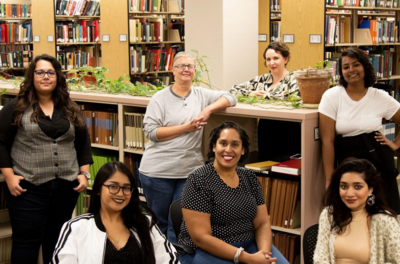
In the wake of the murder of George Floyd and amid Black Lives Matter protests, the ASU community was called upon to contribute their ideas and expertise toward creating an immediate plan of action toward addressing racial injustice.
ASU's 25-action plan was announced by Crow just days following the shooting of Jacob Blake in Kenosha, Wisconsin.
The 25 actions “will be undertaken with the goal of enhancing diversity, growth and opportunity for Black undergraduate and graduate students, faculty and staff,” wrote Dr. Crow, “while also expanding our academic offerings, community services and collaborative relationships to the benefit of all underrepresented groups and individuals at ASU.”
Established in 2017 with the support of Andrew W. Mellon Foundation, the ASU Library’s Community Driven Archives initiative is focused on developing and executing a series of strategies to make Arizona’s historical records more accurate and inclusive.
“Arizona’s archives are dominated by white narratives that romanticize a ‘wild west’ history,” said Nancy Godoy, Associate Archivist and Interim Head of Archives at the ASU Library, who was named a 2020 “Mover and Shaker” by the Library Journal for her pioneering work and leadership as the creator and head of the CDA initiative, which reimagines archives as safe, inclusive spaces for Arizona’s minority communities to reclaim authorship over their own history.
Godoy and her team regularly host and co-host educational workshops for the public on how to preserve one’s history, often partnering with local businesses and organizations, such as the Palabras Bilingual Bookstore. Workshop attendees receive an archive starter kit containing supplies and a brochure on preservation in both English and Spanish.
“One of my favorite things about this work is that community members are learning how to create a story that speaks to their reality,” Godoy said. “They are redefining what an archive is, what should be included, and who should have access to community archives and history.”
President Crow’s announcement marks a new milestone in the CDA trajectory with greater potential for archival healing and social justice for communities that have experienced historical underrepresentation.
Initial plans to expand the library initiative include developing a more diverse archival workforce.